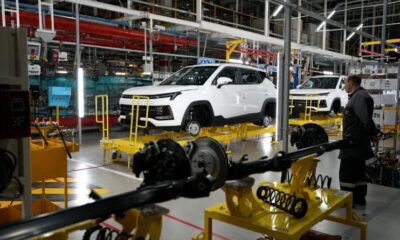National Issues
Igboland: Beyond The Myths – By Kelechi Deca

There are some Igbo people who confess, as a gospel, the geographical fact that Igboland at present has no known access to the sea as if it is a death knell.
They have sowed the seed in their heart that without a seaport, the region would never prosper to her capacity.
And at every platform where discussions on how best to create the much needed lift-effect required to give the region wings, they always interject with their “what of seaport” arguments.
I understand their predicament which is borne out of the decades of overemphasis on trading as if that is the only source of income.
Their thought pattern has been so containerized that they cannot think of anything else. I was speaking to a group of young Igbo last week, I informed them that one software can buy 1000 containers of goods, thus the need to start expanding the realms of their mental possibilities.

As the world changes, the role of traditional trading as we know it also changes. We need to adapt to these changes too.
Of the top five fastest growing economies in Africa in 2018, Ethiopia and Rwanda, which occupied the first and second spots, are landlocked. They are growing at 8.5% and 7.8%. Another good performer, Uganda growing at 5.9% is also landlocked.
But with all its access to the sea, Sierra Leone, Liberia, Guinea, Guinea Bissau, Mauritania, Somalia, Djibouti, Congo and DRC are still at the bottom of the wrung.
Maritime access does not in itself prosper any country. Liberia has the highest number of ships registration in the world, yet it is still Liberia-dirt poor. Go a bit further to the Pacific realm, there are so many countries surrounded by the ocean, yet….
I have also read those who say that Igboland is land poor, and because of its land poverty, it will have huge challenge in proper economic organization to create a prosperous economy within an economy if most of her people return home.
This is nothing but ignorance on rampage. Yes, Igboland has the smallest land mass in Nigeria, but land mass is what it is – just land mass.
These people argue that a population of about 40 million cannot fit into a paltry 41,440 km² of land, giving a population density of 1,000 persons per square kilometre. We know there will never be a time every Igbo will return to Igboland, which is far-fetched.
However, even if they do, it is important to inform these people that Tokyo Metropolitan Area with a size of 13,572 km² has a population of 38 million people and a population density of 2,642 persons per square kilometre.
Hong Kong with a population of 7 million lives on a 78.59 km². Monaco has a population density of 25,105 people. Macau has 21,151 km². These countries have not suffocated by humans trampling upon humans due to space constraints.
Some come up with claims that because of the small land mass, Igboland cannot feed itself. As if Nigeria with 34 million hectares of arable land has achieved 35% sufficiency in food production.
Food security is not necessarily tied to land mass. Quality and quantity of yield per hectare is what counts. This is the 21st century, not the era of gatherer subsistence living.



















